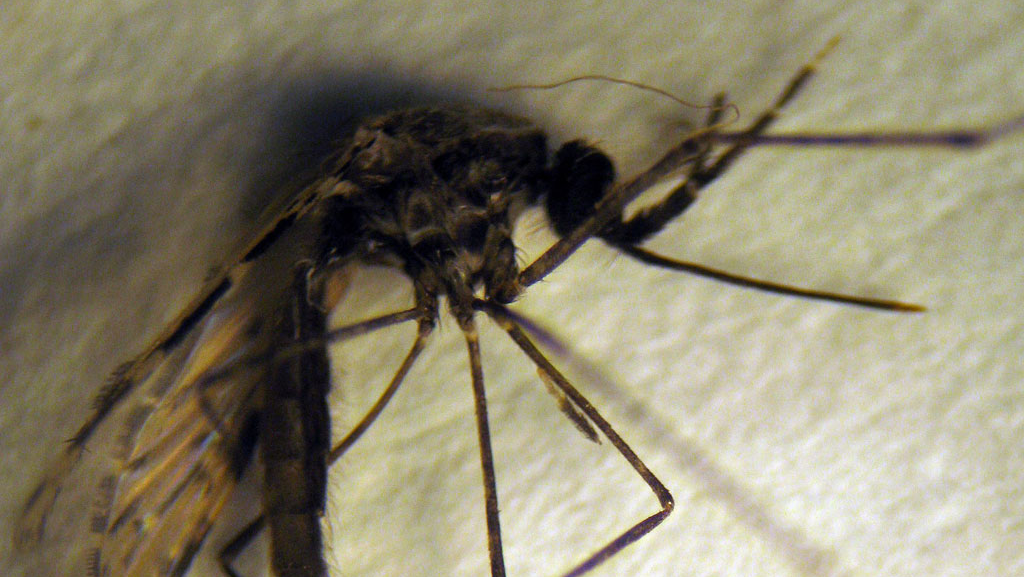New mosquito poses greater malaria threat
Nets are no defence against bug that bites people in the evening

Your support helps us to tell the story
From reproductive rights to climate change to Big Tech, The Independent is on the ground when the story is developing. Whether it's investigating the financials of Elon Musk's pro-Trump PAC or producing our latest documentary, 'The A Word', which shines a light on the American women fighting for reproductive rights, we know how important it is to parse out the facts from the messaging.
At such a critical moment in US history, we need reporters on the ground. Your donation allows us to keep sending journalists to speak to both sides of the story.
The Independent is trusted by Americans across the entire political spectrum. And unlike many other quality news outlets, we choose not to lock Americans out of our reporting and analysis with paywalls. We believe quality journalism should be available to everyone, paid for by those who can afford it.
Your support makes all the difference.Scientists have discovered what could be a new breed of mosquito in Africa with the potential to cause hundreds of thousands more deaths from malaria. Charities say the previously unknown species could pose a serious setback to the global fight against the disease – one of the world's biggest killers.
Researchers said the discovery is worrying because the insect does not behave like normal mosquitoes. Already nearly one million people a year die from malaria caused by bites. But that number would be much higher were it not for mosquito nets. They prevent the female anopheles – the main cause of the disease – from biting at night, when it sucks blood as part of its egg-production cycle. Nearly one million people are thought to have cheated death over the past 12 years by sleeping under nets coated with insecticide.
The new type of mosquito, however, does not wait until night-time; it bites while people are outdoors in the early evening. Even more worrying for the scientists is that they are as yet unable to match the DNA of the new species to any existing mosquito variety.
Jennifer Stevenson of the London School of Hygiene and Tropical Medicine, who was part of the research group, said: "We observed that many mosquitoes we caught – including those infected with malaria – did not physically resemble other known malaria mosquitoes.
"Analysis indicated that their DNA differed from sequences available for known malaria-transmitting mosquitoes in Africa."
Researchers are worried that the feeding daytime pattern of the new tropical bug posed a serious challenge to controlling the disease.
Ms Stevenson said her team found the species in a village in the highlands of western Kenya where they set up outdoor and indoor traps: "The main difference that came through from this study is that we caught 70 per cent of these species A – which is what we named them because we don't know exactly what they are – outdoors before 10.30pm, which is the time when people in the village usually go indoors."
Andrew Griffiths, from the children's charity World Vision, said the findings are a setback in the worldwide battle against malaria: "It's concerning because bed nets are one of the important tools in combating malaria and we've seen deaths go down dramatically."
He added that while nets are not the only answer to reducing the incidence of the disease, they are one of the main ways.
"It would mean that one of the important parts in the response to malaria would be taken away. We have to be talking about protecting yourself at different times of the day and put even more focus on the community and other systems without too much reliance on bed nets."
Scientists who led the study in Kenya are now calling for wider controls to deal with outdoor transmission of the disease.
Jo Lines, a colleague of Ms Stevenson at London School of Hygiene & Tropical Medicine and a former co-ordinator for the World Health Organisation's global malaria programme, said: "We do not yet know what these unidentified specimens are, or whether they are acting as vectors [transmitters] on a wider scale, but in the study area they are clearly playing a major and previously unsuspected role."
Join our commenting forum
Join thought-provoking conversations, follow other Independent readers and see their replies
Comments